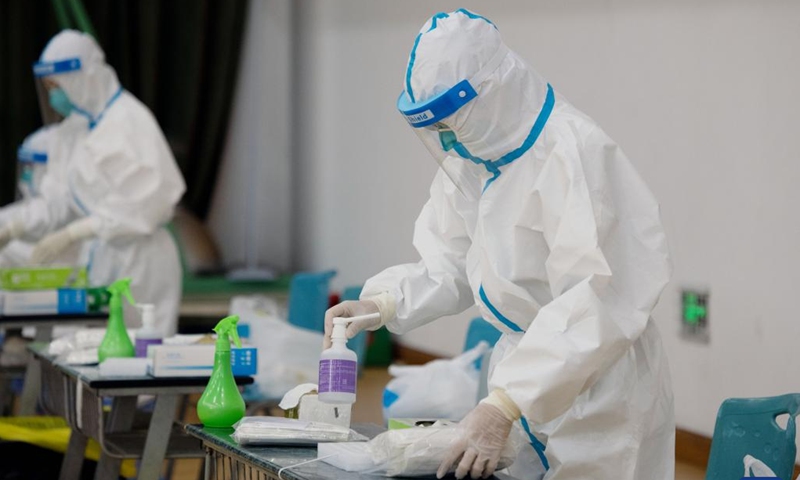Shanghai health authorities on Friday expressed their deepest condolences to a nurse who died of asthma Wednesday night. The authorities urged medical institutions to meet residents’ needs for first aid although the megacity is fighting against the severest round of COVID-19 outbreak.
Zhou Shengni, a nurse who worked at the Shanghai East Hospital, who had an asthma attack at home on Wednesday, died after delayed treatment. At 7 pm Wednesday, Zhou’s family members took Zhou to Shanghai East Hospital for medical treatment, but Zhou was unable to enter the hospital as the emergency department of the south division of the hospital was temporarily closed due to epidemic prevention and control measures, according to a notice released by the hospital on Friday. The hospital was undergoing environmental sampling and disinfection.
Zhou’s family members decided to take her to another hospital. But she died around 11 pm.
The hospital sent deepest condolences and sympathies to the family.
“The city’s epidemic prevention working staff has been working hard, with great physical and psychological pressure, over the past two years,” Wu Jinglei, director of the Shanghai Health Commission, said at Friday’s press briefing, calling for more care for frontline workers.
Wu said that some residents have encountered problems trying to get medical treatment especially when it’s unrelated to COVID-19. Hospitals should be able to both focus on fighting the pandemic and maintain normal hospital operations unrelated to COVID-19, particularly emergency services, he said.
Shanghai faces the toughest challenge to combat Omicron, as the city registered 29 local COVID-19 cases and 1,580 local asymptomatic infections on Thursday. The number of asymptomatic infections has recorded a new high since the Omicron outbreak from March in the city.
Speaking on his Sina Weibo account on Thursday, renowned infectious disease expert Zhang Wenhong acknowledged issues raised by some residents, such as the “lives of people living in epidemic-restricted areas are not well guaranteed, the restriction period is too long, and frequent restrictions of hospitals cause inconvenience for other patients.” He said these problems should not be evaded.
Shanghai follows a scientific, precise and dynamic zero-COVID approach and focuses on weakness identified during the process of epidemic prevention, Wu said, stressing the importance of reasonable allocation of resources and swift response in epidemic prevention.
Medical workers prepare to carry out nucleic acid tests at a nucleic acid testing site in Qingpu district of East China’s Shanghai, March 14, 2022. Photo: Xinhua




